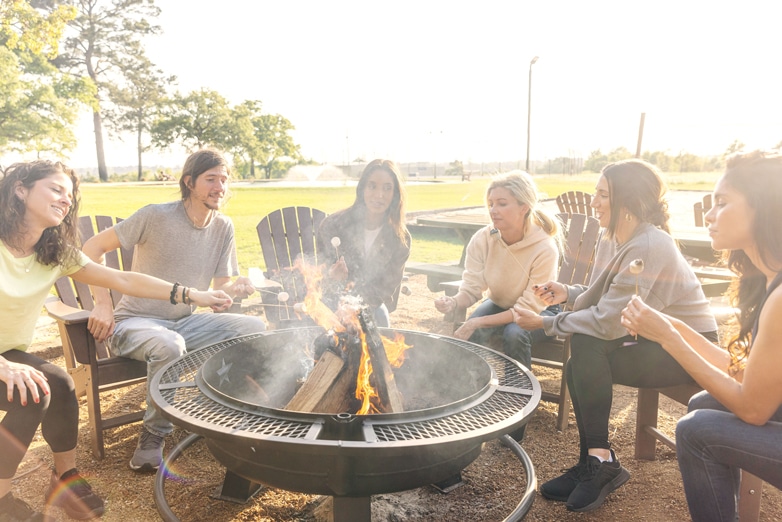Being in college is one of the most life-changing and exciting times for any young adult. However, it can also bring influences that can impact a student, whether good or bad. When it comes to college students with addiction problems, are there available recovery programs within the academe?
Popular media has stigmatized college life with issues on sex, partying, drinking, and trying drugs for the first time. Although these hasty generalizations aren’t always true, there are quite a few reasons why college life has this stereotype.
According to Substance Use Disorder and Mental Health Services Administration (SAMHSA), one-third of the overall population of college students have engaged in binge drinking over the past month, while 1 in 5 students have tried illicit drugs at least once. These high percentages show us how rampant addiction is among students and young adults, and many parents wonder if there are college recovery programs in place to help with this growing problem.
Sober Living in Universities
Although policies from college to college are different, there are in fact several universities all over the country with recovery programs for students. These collegiate recovery programs are either student-led or faculty-led. NBC News reported that the number of sober programs for students has been increasing over the years, in order to battle the problem of addiction even before the individual exits the school.
This is good news for parents and students alike. With sober living college programs, substance use disorder can be prevented early on, and can possibly avoid the devastating effects of severe addictions.
It is important to know that most programs in various types of sober universities expect students to have undergone rehab whenever possible. These college recovery programs are set in place to aid students in avoiding environmental and internal triggers that bring about relapse.
If you’re an incoming student or a parent looking for colleges with these programs set in place, below is a list you can refer to.
List of colleges with recovery programs
Sober Dorms and Collegiate Recovery Programs
What are the things that you can expect when signing up for sober dorms and collegiate recovery programs? Upon admission, there are four main components you will see for most of the universities and colleges mentioned above.
Components of sober living include:
Academic services
Addiction affects not just the personal affairs of the student, but also their academic pursuits. One of the clear signs of substance use disorder is the loss of interest in previous activities. Some college students may find themselves skipping classes, having failing grades, or being unable to cope with subject requirements.
Thus, academic services are set in place for students in recovery. There will be tutors, mentors, and group study sessions available for students whenever they need it. Counselors are also part of the academic services, especially when students feel confused about the major they’re taking and the career path that’s ahead of them.
Sober dorms
Another important component if college sober living is sober dorms. These dormitories house students who are part of the college recovery programs. The sober dorms have rules and regulations, including communal activities that encourage sobriety. In some universities, sober dorms have the following features:
- Stricter curfews: Students need to go back to the dorms at a designated time in the evening.
- Specific room assignments: Intentional room assignments may also be necessary to avoid triggers that bring back an addiction.
- Group sessions among dorm students: Although students have varying schedules based on the degrees they’re taking, there may be group therapy sessions where people at the dorm gather to support each other on their road to recovery.
These sober dorms are optional if the student lives in-city or in-state, but other parts of the college recovery program may be availed.
Recovery program
Aside from assistance in the academic life of the recovering students, there is also a custom-tailored recovery program available. Some colleges and universities are in partnership with high-quality rehab centers in implementing these recovery programs.
They recruit addiction specialists, counselors, therapists and healthcare workers to provide in-house treatment for the students. Some of these services available are:
- Therapy and counseling
- Group therapy
- Nutrition and fitness programs
- Holistic and wellness programs
- Medically Assisted Treatment (MAT)
These programs vary from college to college, but the main goal is to provide treatment services that don’t interfere with the student’s academic life. This way, they can still stay in the sober dorms while receiving the much-needed intervention.
Crisis management
In the event where a student goes through a personal, mental health, or addiction crisis even within the college recovery program, there should be a crisis management protocol available. You should expect good colleges with recovery programs to provide students with crisis hotlines and 24/7 operator emergency service when they are going through something serious.
The goal of crisis management is to prevent the life-threatening consequences of addiction, such as:
- Suicide
- Violence within the school grounds
- Illegal activities
- Overdose
- Relapse
- Mental health problems
- Other personal crises
Crisis management is necessary to help faculty and staff members to be prepared for the unexpected during student recovery programs.
Association of Recovery In Higher Education
Aside from the list of universities above, you can also refer to the Association of Recovery In Higher Education (ARHE). They are the main organization partnered with the colleges offering addiction recovery programs all over the United States.
ARHE also provides community connections for college students to receive treatment programs close to their university.
Education And Recovery? Not A Battle Of Choice
With these collegiate recovery programs, it is possible to achieve a world where no student has to choose between education and addiction recovery. Universities who value their students’ lives should not only care for their academic achievements, but also for their overall well-being.
Sources:
- Samhsa.gov – “A Day In the Life of College Students Aged 18-22: Substance Use Facts”.
- Nbcnews.com – “A growing number of sober programs support college students recovering from addiction”.
- Mayoclinic.org – “Drug addiction (substance use disorder) – Symptoms and causes”.
- Washingtonpost.com – “The party’s over: ‘Sober dorms’ are on the rise”.
- Collegiaterecovery.org – “Association of Recovery In Higher Education”.
Medical disclaimer:
Sunshine Behavioral Health strives to help people who are facing substance abuse, addiction, mental health disorders, or a combination of these conditions. It does this by providing compassionate care and evidence-based content that addresses health, treatment, and recovery.
Licensed medical professionals review material we publish on our site. The material is not a substitute for qualified medical diagnoses, treatment, or advice. It should not be used to replace the suggestions of your personal physician or other health care professionals.






